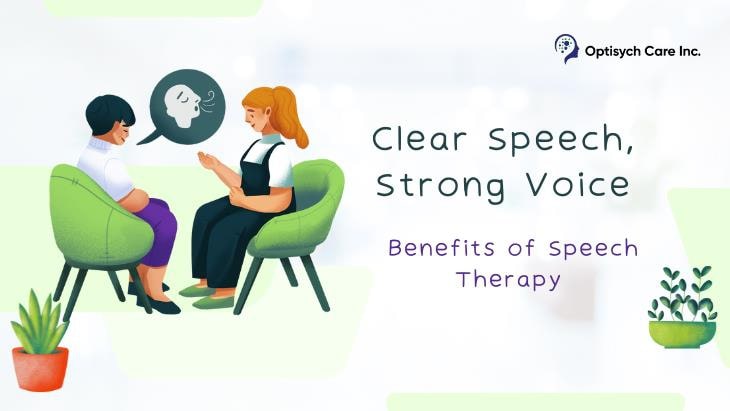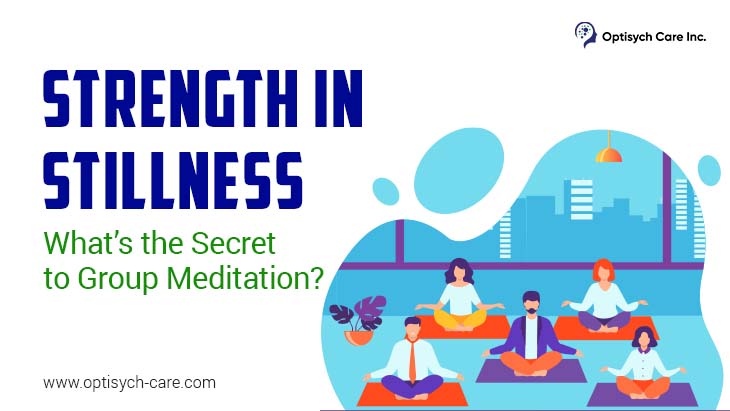Mental health has become one of the most burning issues of the world in the time of the rapid digitalization of the world. Stress and anxiety, depression, and burnout are just a few of the issues that millions are looking to find a reliable and easy solution to address their emotional health. Nevertheless, conventional therapy models cannot usually address the current requirements due to the hectic schedules and the lack of professional help.
It is in this area that digital marketing and virtual therapy services have revolutionized the mental health environment. These sites are linking people to therapists, counselors and wellness programs anytime, anywhere, by integrating technology and professional know-how. The best online therapy platforms are dismantling geographical and social boundaries and offering mental health care in real time at the touch of a button.
With digital innovation constantly transforming the healthcare sector, these marketplaces are not merely providing therapy, but they are constructing a new age of accessible, affordable and non-stigmatized mental health.
The History of Mental Health Care
In times past, therapy was confined to face-to-face sessions, and in most cases, the appointments were to be made several weeks ahead of time. Patients were forced to move around, pay exorbitant prices and even face stigma in society when seeking psychological assistance. This rendered therapy inaccessible to a great number of people—rural, mobility challenged and those not willing to confront their plight face-to-face.
In the course of time, the growing awareness of mental health started altering the perceptions. However, the barriers of accessibility and affordability still prevailed. The digital technology came in, and things changed. The online platforms joined in linking patients to licensed therapists through safe video calls and chat-based therapy sessions. What used to be a luxury had become a need one could afford.
Virtual therapy services have today transformed mental health care into something affordable, flexible and inclusive, thus bringing a digital transformation that is redefining daily life.
Digital Markets in Mental Health What Are Digital Marketplaces?
Online Health Care In an online system, a digital marketplace is a mental health platform that links users with mental health providers and treatment tools. Similar to the e-commerce websites that provide the link between the buyer and the seller, these marketplaces provide a connection between those in need of assistance and the qualified therapists, psychologists and counselors.
The virtual therapy providers and mobile wellness apps, as well as telehealth services, focus on emotional well-being and are some of the best online therapy platforms. These portals are based on secure and convenient interfaces, according to which clients learn more about therapists, select specialists according to their requirements, and easily book a session.
To illustrate this point, an individual experiencing anxiety can visit a platform and solve a brief test and immediately find a therapist who has specialized in anxiety management. Guided meditations, wellness content, and support communities are other means of emotional development and healing that are provided by digital marketplaces in addition to one-on-one therapy.
Concisely, online marketplaces have democratized mental health care, and it is now available to any internet user.
The Impact of Technology on the Inaccessibility of Mental Health
Technology is one of the key success factors in Virtual Therapy Services. The personalization of the therapy experiences is conducted with the help of Artificial Intelligence (AI) and the use of data analytics, which match the clients to therapists that suit the personality, condition, and communication style.
Video conferencing tools and chat-based systems are also used in modern best online therapy platforms to allow flexible communication. The users have the option of scheduling a therapy session using a live video session or having a private chat with the therapist whenever they need them.
Besides, therapy has been rendered portable through mobile applications. The clients will be able to monitor mood patterns, get reminders on mindfulness exercises, and analyze emotional progress over time. Such a combination of personalization based on data and the availability of digital therapy on demand has rendered it an active, technology-driven approach to contemporary mental health care.
Advantages of Digital Markets to Mental Health Care
1. Accessibility
The greatest advantage of digital therapy is accessibility. Users anywhere in the world can access qualified professionals who comprehend their needs due to the 24/7 availability. No commuting, no queues-- therapy on your conditions.
2. Affordability
Conventional therapy sessions may be costly to some extent, even exceeding the amount of money that many may afford in a week. Individual mental health is affordable with flexible pricing plans and subscriptions.
3. Personalization
The best online therapy platforms connect clients and therapists through their preferences, goals, and symptoms using AI and intelligent algorithms. This would make every session client-specific, based on the needs of the client on an emotional level.
4. Privacy
Privacy is one of the least recognized benefits of virtual therapy services. To the individuals who are not completely sure about the stigma affecting them, online sessions provide the utmost benefit of absolute confidentiality in a safe and secure environment.
5. Convenience
There is home-based therapy whereby the clients can schedule the therapy sessions around their day-to-day activities. This adaptability fosters consistency and allows mental health care to become a long-lasting habit and not a special solution.
The Power of Digital Marketplaces for Therapists and Professionals
It is not only the patients who benefit when using digital marketplaces, but it also gives mental health professionals more power. Therapists are now at liberty to connect with clients even when they are out of their physical location, hence reaching them anywhere in the world.
Such sites decrease the number of administration tasks by automating the schedules and payments and client interaction systems. Consequently, practitioners will have more time to attend to their patients and less time to do paperwork.
In addition, web resources provide the possibility to collaborate with practitioners across the globe and allow therapists to exchange knowledge, talk about the best practices, and develop within a virtual community.
Essentially, online marketplaces are developing a flourishing ecosystem in which therapists and clients are being symbiotically co-dependent.
Issues and Problems of Ethics
The Virtual Therapy Services has its challenges regardless of the numerous benefits that it has. One of the highest priorities is data privacy and cybersecurity. Since the therapy sector is sensitive, online platforms should invest in high-level encryption and extreme levels of confidentiality.
Quality control is also another challenge. With the increase in online therapy, it is important to make sure that only licensed and qualified professionals are posted on the online platforms.
Finally, digital therapy is indeed very beneficial, but human empathy should also be preserved. Technology must be a facilitator, not a hindrance, to emotional appeal. The most suitable platforms focus on kindness, listening, and trust, where clients are not deprived of the human touch despite the screen.
The Digital Era of Mental Health Care
Mental health care is definitely going digital, and it is already present. The development of such innovations as artificial intelligence, virtual reality (VR), and wearable devices is improving the way of formulating therapy.
As an example, we have VR therapy, which is applied to PTSD and anxiety through the creation of controlled immersive environments to heal. Chatbots based on AI are also offering 24/7 emotional assistance, and wearable devices can currently track the effectiveness of stress, sleep, and mood patterns.
Better models are emerging as hybrid ones that integrate online therapy with regular in-person meetings and thus provide the best of both worlds. This way, Virtual Therapy Services will keep developing and become more proactive, personalized, and universal, as well as making mental wellness more accessible.
Conclusion
Online markets have entirely revolutionized our mental health care in the way we consider it. They have redefined the idea of accessibility and dismantled the barriers that used to surround emotional wellness by making it easy, low cost, and accessible to people through a secure, affordable, and easy-to-use platform.
Technology has not substituted human empathy—it has enhanced it. The best online therapy platforms allow anyone to call out to seek assistance in the comfort of his home, any time of the day. This divine combination of innovation and compassion is creating a path for a more emotionally resistant society.
We should not forget that in our acceptance of this digital transformation, asking others to assist us is a strength and not a weakness. It could be mobile applications, teletherapy, or even AI-driven solutions, but the point is that mental wellness is a priority to all, in all locations.
We at Optisych Care the power of technology is in that we can make therapy more accessible, more effective, and human-centered. With our quality and caring, we have been serving people and making them mentally clear, emotionally balanced, and well in the digital era.






Leave a reply